CfLaT Headlines
- Rachel Lofthouse was invited to give a key-note at the annual UCET Conference in November 2016. Her theme was ‘“I’ll get by with a little help from my friends”: opportunities for collaborative teacher learning in Initial Teach-er Education and beyond’. She drew on a number of CfLaT projects and initiatives to develop the theme. Two blogs based on the lec-ture can be found on the ECLS Education blog https://blogs.ncl.ac.uk/education/
- Karen Laing has won an ESRC IAA Knowledge Exchange award which enables her to spend a day a week working with Wallsend Action for Youth developing a theory of change for their work, and exploring how Universities and partners can work together effectively to make a difference in our local communities.
- Joana Almeida from Portugal is a new re-search associate in CfLaT. She is working with Sue Robson on an Erasmus+ project about internationalisation practices in Newcastle University, University of Bologna (Italy) and the Catholic University of Leuven (Belgium).
- CfLaT also has a visiting researcher, Larissa Negris de Souza, coming from Brazil for 3 months from February to work with Pam Woolner on school space.
Laura Mazzoli Smith has a journal article coming out in Russian. She was invited to a conference at Samara University, Russia, in November 2016 entitled ‘Giftedness as a Phantom in Social Expectations.’ and was then invited to submit her full paper to a journal.
PROJECT LAUNCH: ATIAH (APPROACHES AND TOOLS FOR INTERNATIONALISATION AT HOME)

Higher education internationalisation is more than mobility – if universities are to become truly ‘international’ they have to start ‘at home’. This is the motto of ATIAH, a new Erasmus+ Strategic Partnership be-tween three leading European universities: Newcastle University, KU Leuven and Università di Bologna.
Over the next 2 years the consortium will be working together to develop a set of innovative resources and tools for internationalisation at home, including:
- An audit tool for universities seeking to review their current practice
- An online toolkit for an ‘internationalising university experience’ module
- A framework for evidencing good practice internationalisation
The resources are aimed at educators, students, staff development and profes-sional service units, and those in a leadership position in higher education institu-tions in Europe and beyond.
As internationalisation efforts remain largely market-driven and recruitment-focused, the partnership will move towards a more values-based and ethical ap-proach to internationalisation in higher education.
For more information and up-dates, contact Alina.Schartner@ncl.ac.uk
DEVELOPING PROJECT BASED LEARNING
We have three important announcements:
1. On 14th March there is a ‘Learning City’ invitation event at Newcastle University – there are still some places available for colleagues within and beyond Newcastle University, so please get in touch if you’d like an invitation to this free event;
2. We have nearly finished editing our groundbreaking ‘Guide to Community Curriculum Making’ – copies will be available very soon – http://www.ncl.ac.uk/cflat/publications/cflatguides.htm;
3. We have funds for a scoping exercise for a dedicated PBL facility at the university, aimed at both school groups and university needs, so we are inter-ested in views from the university and outside.
Contact Ulrike Thomas (U.Thomas@ncl.ac.uk) or David Leat (David.Leat@ncl.ac.uk) if you want to know more about any or all of these announcements.
LEADERSHIP IN CHINA 2016
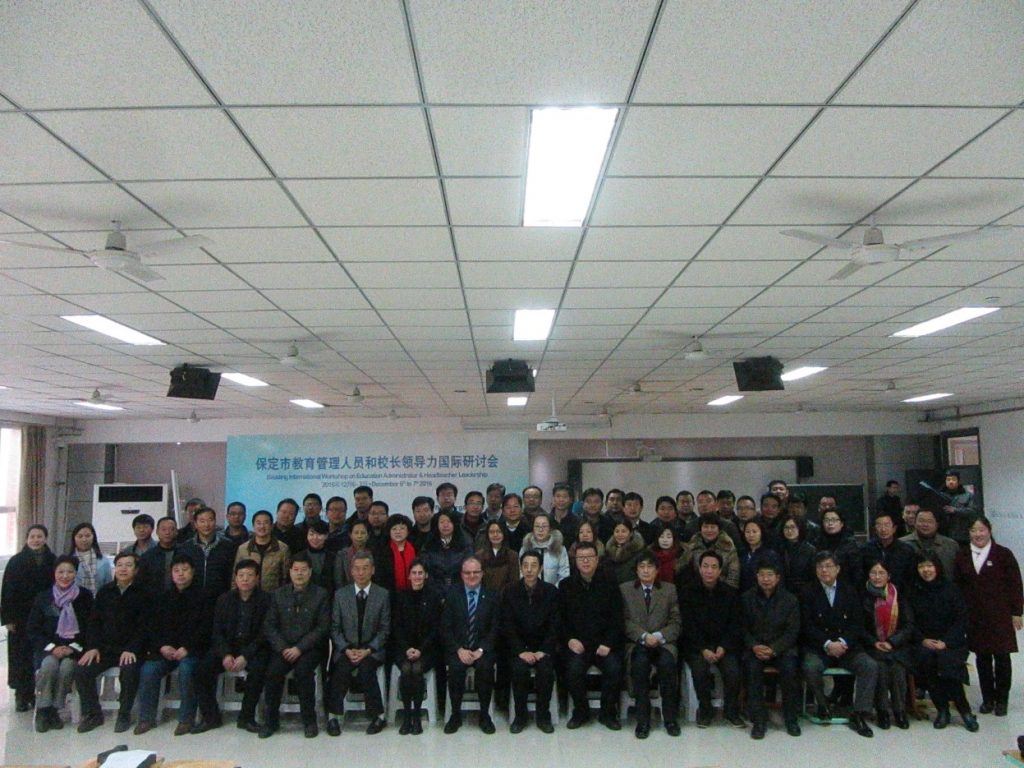
Following the signing of a Memorandum of Understanding be-tween Newcastle University and Baoding Education Bureau in May, René Koglbauer and Anna Reid returned to the region in December to deliver a leadership training programme for 70 headteachers.
The participants thoroughly engaged with the interactive approach of the workshops; the two-day workshop was concluded by a joint plenary to explore further development needs for a potential programme in Newcastle.
While Anna stayed in the region to de-liver a keynote on English language teaching and to be a member of the judging panel for the regional English language teacher competition, René travelled to our partner institution, Xia-men University, to present on ECLS’ activities and programmes.
During this 24-hour stop in Xiamen, future leadership programme opportunities were also discussed with the International Office. The intention is to replicate last summer’s Xiamen Leader-ship and Management Summer School here at Newcastle University.
For more information, contact: rene.koglbauer@ncl.ac.uk or anna.reid@ncl.ac.uk
ROBIN HUMPHREY VISITS THAI UNIVERSITY
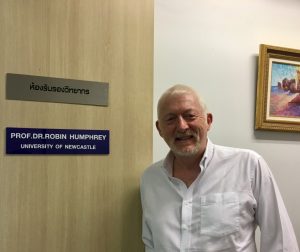
Robin Humphrey was a Visiting Professor in the Faculty of Social Sciences, Naresuan University, in November, 2016, where he is part of a doctoral collaboration funded by a Royal Thai doctoral scholarship and a British Council Newton Fund award.
The PhD student, Damrong Tumthong, is evaluating a Thai government scheme to provide educational opportunities for disadvantaged young people, and he has started his fieldwork in the poorest region of Thailand, in the north east of the country. Damrong has already spent six months at Newcastle University under Robin’s supervision, and will spend another six months here once he has finished his fieldwork.
During Robin’s visit to Naresuan, a key strategic partner with Newcastle, he gave a public lecture about his work on building interdisciplinary and cross cultural research teams, and contributed to advisory sessions for some of the university’s social science doctoral researchers.
For more information, contact: robin.humphrey@ncl.ac.uk
CfLaT ‘working together’ at Civic Centre event
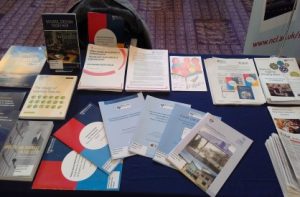
CfLaT members were at out in force at a recent event at Newcastle Civic Centre, ’Working Together: Bringing About Change’.
The aim was to showcase social science research based on partnerships with those beyond the University, giving everyone chance to mingle and develop new partner-ships. There was a CfLaT stall and stalls show-casing Heather Smith’s ROMtels project and Lydia Wysocki’s research use of comics. David Leat and Ulrike Thomas gave a talk about their successful collaboration with Seven Stories.
IMPACT OF OUT OF SCHOOL ACTIVITIES
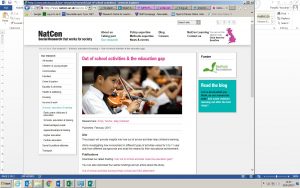
Liz Todd, Karen Laing and Laura Mazzoli Smith have recently concluded a study looking at chil-dren’s out of school activities and the relationship with attainment.
Findings included:
– Differences in take-up of activities based on socioeconomic status
– Differences in the take-up of private tuition based on ethnicity
– Participation in after school clubs increased with age, but there was similar take-up by children of different socioeconomic back-grounds
– Participation in out of school activities was associated with a range of positive outcomes. Organised physical activities were associated with higher attainment and better social, emotional and behavioural outcomes at age 11.
– After school club attendance was associated with positive academic and social outcomes for disadvantaged children in particular. School staff, parents and pupils identified a wide range of perceived benefits from taking part in after school clubs covering academic as well as social and emotional outcomes.
This research, funded by the Nuffield Foundation, has been presented at a number of conferences and seminars, and the team have been invited to present at EARLI in the summer as part of a symposium on addressing disadvantage.
Further information about the study can be found at
http://www.natcen.ac.uk/our-research/research/
What is LTHE..?
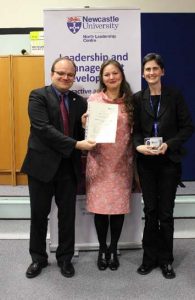
It is hard to believe that we have already worked with more than 100 academic colleagues from Kazakhstan and found ourselves welcoming the fifth cohort onto the Learning and Teaching in Higher Education (LTHE) programme in November 2016.
Yet again, colleagues from CfLaT and the North Leadership Centre came together to deliver a range of workshops and social events, designed to provide a variety of cultural and intellectual experiences, upon which colleagues can draw to enhance the quality of learning and teaching in their respective universities.
In addition to a collective post created for the Education @Newcastle University blog during Dr Rachel Lofthouse’s session on academic writing (see below for the link), Associate Professor Roza Zhussupova from the Eurasian National University, Almaty, was keen to capture the impact of the programme on her professional learning. It makes for an interesting read!
Collective blog post: https://blogs.ncl.ac.uk/education/2016/11/15/travelling-to-the-uk-from-kazakhstan-learning-from-a-study-visit/
Blog post by Professor Roza Zhussupova: https://blogs.ncl.ac.uk/education/2016/12/07/what-is-lthe-and-what-is-its-contribution-to-learning/
For more information, contact: rene.koglbauer@ncl.ac.uk
FaSMEd launches toolkit for Formative Assess-ment in Science and Mathematics
Education
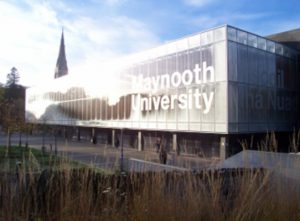
At the end of our three year EU funded FP7 development project, FaSMEd partners met with key invited guests from research, policy and practice for the FaSMEd International Conference and Final Meeting on the 1st and 2nd November 2016 at Maynooth University, Ireland. This represented a significant international community of experience, expertise and practice in science and mathematics education with specific knowledge of digital technologies and Formative Assessment.
The conference shared many of the outcomes of the FaSMEd project and facilitated discussions around raising achievement in mathematics and science education with a focus on implications for future research, policy and practice.
Each partner produced a research poster and these were displayed and used as a focus of discussion throughout the conference (copies of these posters can be downloaded at: https://research.ncl.ac.uk/fasmed/deliverables/ ).
At the end of the day we also took the opportunity to celebrate the achievements of FaSMEd and the extreme-ly productive working relationships we have established with each other and with our teachers and students in schools over the life of the project – a big thank you to all those involved!
Following our final meeting and conference, FaSMEd launched our online toolkit to support teachers, as well as teacher educators, stakeholders and other interested parties, in using technology for formative assessment in mathematics and science education.
The website is primarily in English but you will also find materials in all partner languages (English, German, Italian, French, Norwegian and Dutch) under the heading “Tools for Formative Assessment”.
The FaSMEd Toolkit homepage gives an overview of the project, along with an introduc-tory short film that includes various discussions between researchers and teachers, scenes from FaSMEd project meetings, lessons, classroom discussions, the use of different technologies and tools as well as interviews. Sub-sections include information on formative assessment, professional development materials and a range of tools for formative assessment, including teacher guides and downloadable classroom materials.
The toolkit can be found at: www.fasmed.eu Please take a look!







